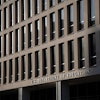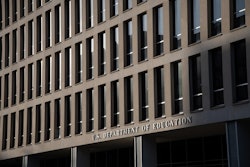
A recent article from The Century Foundation (TCF), a nonpartisan think tank, outlined several suggestions to ED for better protecting students and taxpayers from colleges, particularly for-profits, at risk of closing abruptly. Such sudden shutdowns leave students in the lurch and can cost taxpayers millions in federal dollars.
“There’s been a pattern of schools, especially for-profits, enrolling thousands of students, then shutting their doors with no warning,” said Carolyn Fast, senior fellow at TCF and author of the piece, titled “Overhaul Financial Oversight of Colleges to Better Protect Students and Taxpayers.” “The question is, why does this keep happening? And what can the Department do differently to prevent these closures and the harm that comes from them?”
One of the paper’s recommendations is that ED should change how it identifies financially unstable schools—and how frequently schools should report as well as update their financial health to ED. Fast said that there can be a big time lag between when ED gets details about a school’s financial standing to when that school runs into struggles.
“Part of the issue is that the Department seems to identify the problem when it’s already too late,” said Fast. “So, by the time they know the school may have a problem, it might be too late for the Department to take action, and the school has been getting federal funds in the meantime.”
For instance, the paper noted that, despite being almost two years into the pandemic, ED is currently relying on the financial composite scores of colleges based on 2018 and 2019 data. A financial composite score is a single number meant to indicate the financial health of a higher education institution. But in a rapidly changing economy, if that score comes from old data, then Fast questioned how that number can show an accurate picture.
“I think the piece is really spot-on with the call for more information,” said Matthew Bruckner, an associate professor of law at Howard University School of Law. Bruckner is an expert on bankruptcy law in higher education. “The Department makes decisions with big impacts using old information. If you’re on the financial fence, they should instead be asking, what steps are you taking today to address that which you know is coming?”















